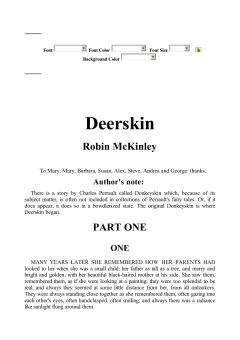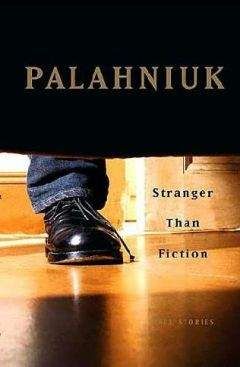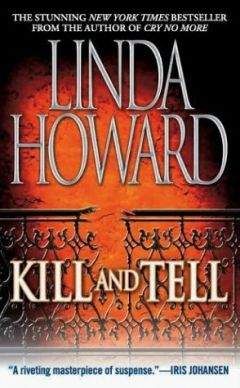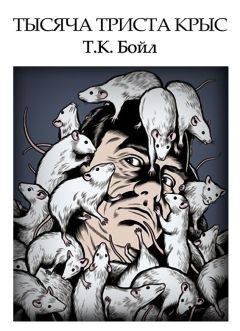Deerskin - Robin McKinley
На сайте mybooks.club вы можете бесплатно читать книги онлайн без регистрации, включая Deerskin - Robin McKinley. Жанр: Прочее издательство неизвестно,. Доступна полная версия книги с кратким содержанием для предварительного ознакомления, аннотацией (предисловием), рецензиями от других читателей и их экспертным мнением.
Кроме того, на сайте mybooks.club вы найдете множество новинок, которые стоит прочитать.

Deerskin - Robin McKinley краткое содержание
Robin McKinley читать онлайн бесплатно
SEVENTEEN
LISSAR WAS MORE WARMED AND SHAKEN BY HER ENCOUNTER with Ammy and Barley than at first she realized. She often remembered the sound of their voices, the words they used, words a little different from the ones she or Rinnol would have chosen, and differently pronounced. But she rolled the sound of their voices around in her head like coins in the hand. And she decided, without ever deciding, that she would continue travelling by night..It was too important a matter, this talking to people, and listening to them, to do it lightly or often.
The weather grew warmer, both, she thought, as they came farther and farther from the mountains, and as spring progressed toward summer. There were the first pale shoots of witchgreen growing by the streams they camped by, tender and sweet, and nothing like the huge dark intensely bitter leaves the same plant would have produced by midsummer. Lissar risked tastes of plants she did not know but that looked and smelled plausible; one of her guesses gave her a day of belly cramps, but the rest were good, and provided some welcome variety. Nothing was as good as Ammy's rabbit stew however, and her bread was gone far too soon.
But the morning came when they could find no wildness to retreat to, not even any semi-cultivated hedgerow to sleep under. The road had grown wider and wider yet, and there was traffic on it sometimes even at night, though when anyone hailed her she merely raised a hand in acknowledgement and kept on. At night, usually, other travellers were in a hurry, bent too urgently on their own business to take much note of who shared the road with them. Once, one twilight, someone's dog had leaped off a wagon and tore after them, barking briefly in a businesslike manner that Lissar did not like; it was big and black and it ran like it was nobody's fool. But before she had done anything but touch her stone-pocket, Ash had turned and hurled herself silently on their pursuer. Something happened, very quickly, and the other dog fled, howling like a puppy. Lissar barely had had time to break stride. She paused, but Ash gave her a look as if to say: why do you bother?-and Lissar thought perhaps she did not want to enter into a conversation with the men on the wagon who were-she glanced at them-staring at her and Ash with their jaws visibly hanging.
So they ran on.
As the days grew longer it was no longer possible only to travel in the dark hours; she would waste too much time, and she was impatient to reach the city she had chosen as her destination. Farmers' dogs occasionally chased them but were careful not to get close: I am merely, they barked, announcing that this is my territory; I have no quarrel with you so long as you continue on your way.
She had not expected to come to the city so soon. Perhaps it had, in the last thirty years, since Barley's journey, reached out to meet him-and got her instead. Dawn was growing, pink and yellow and long streaks of pale orange, and she and Ash were tired, but she saw nowhere for them to rest in hiding. She had been careless; she had grown accustomed to running along a straight and easy road every night, with no decisions to make but which field looked a likely place to find dinner. She had grown accustomed to the steady increase of houses, and the occasional village spilling out from the road like groundwater filling a footprint. But the villages had been small and farmland began again on their other side, and with farmland, small wild groves and untitled meadows.
The first time they came to a town center where there were no fields at all, and the buildings were all attached to each other, as if the road had high thatched walls with shuttered windows in them, she had stopped in amazement. She felt she had run into another world, where the people must be visibly alien, with mouths at the top of their faces, or eight fingers on each hand. But that piece of the road was quite short-she paused to peer down a side-road, similarly lined with unbroken wood and stone-and they soon ran through it and out into the open land again. She realized that farmland now looked almost as familiar to her as unbroken forest once had.
Maze, she thought, thinking about the building-walled town. There was a maze, once, in a garden where I walked, with hedges high and clipped close. You were supposed to find your way into the center and back out again. I went there with Viaka. But with the name Viaka, her memory shut down again, and she thought no more about the town.
Dawn was now morning, and there were more and more other people on the road.
She and Ash had to slow to a walk, partly because it would be too awkward, and partly too conspicuous to thread their way through the throng at a more rapid pace; people on foot walked. Horses and carriages moved more quickly. But partly also it was from weariness. They had nothing to eat; it was not unusual to miss a meal, but to have the prospect of neither food nor sleep was hard. Ash's tongue was hanging out.
At least we can find water, thought Lissar. Somehow. I hope. But Lissar had not taken into account town hospitality; soon they came to a wide low watering-trough by the roadside, set next to a well. A woman was there already, watering her horses by pouring bucket after bucket into the cistern. Ash stepped up beside her and lowered her head.
The woman turned, startled. Her horses were tall and handsome, both pairs dark bay, wearing glittering harness; the woman was short and drably dressed, and her horses' tails had been more recently combed than her hair, which had been bundled erratically into a braid. "I thought I'd missed one," she said to Ash. "You're almost big enough to be a horse, although you don't drink like one." Ash was lapping noisily. The woman dropped the empty bucket into the well; when she pulled it up again, she offered the dipper, attached to the side of the well by a thin chain in case of accidents, to Lissar.
"I thank you," said Lissar, and drained it, and offered it back to the horse-woman.
"You've come a long way," said the woman. Lissar wondered if she was referring to her accent, her thirst, her dishevelled appearance, or her obvious weariness; and she smiled a little. Her thoughts were tired too, and inclined to wander. "Yes." She looked at the ground, and then down the road, the way they were going, toward the yellow city, which must be very near now. Many of the buildings around them were of yellow brick. Perhaps they were already in it and she had not noticed when they crossed from outlying town to the city itself. Was there a gate? Was there a reason she expected there to be one? So, here they were. Now what? The voice in her head remained obstinately silent.
"I don't mean to be rude," said the woman, "but you look like you might be able to use some advice. I am not very good with the kind of advice my mother used to give out-which is why I don't live at home any more"-the woman grinned-"but I've lived here longer than you have, I think, so maybe I can help."
Lissar looked at her. She was still smiling, and it was a nice smile; and her four horses all looked shiny and content. When she made a quick gesture to wave a wasp away from the nearest horse's head it did not startle away from her.
"I-it's hard to say," Lissar began finally. "I do need-advice, as you say. But I don't know what to ask for." Ash sat down in the middle of the road and began digging at the back of her neck with one hind foot, her lips pulled back in the canine rictus of joy that scratching inspires. Lissar looked up again. "I decided to come to the city-but, oh, I forget! And now that I'm here I don't know what to do."
The woman laughed. "You sound like me-although I did remember why: to get away from my mother. But I was still a farm girl-still am-but I was lucky, and they could use a horsewalker. Indeed they need another one for a few weeks, because Jed fell and broke an ankle, the chump. Usually we pick up the post-horses in pairs.
These four"-she patted a shoulder-"are very good-natured-well, all Cofta's horses are good-natured, just like he is; if you want the kind of idiocy that equally idiotic people like to think of as spirit, the Count Mayagim has 'em. Horses that have been let think rearing is cute ... sorry. I mean, one person for four horses isn't enough.
Would you like to come with me? It's not far now, but it'll get more crowded, particularly once we're in through the gates, and I'd appreciate the help.
"There's a meal at the end of it, and a bed, and you can talk to Redthorn, who hired me; he knows everything that goes on in the city. And, you know; the king offers a meal and one night's bed to anyone who asks, so now that's two days-how can you lose? Something'll turn up. Besides . . ." She paused at last, and looked at Ash, who was whuffling in the road-dust after a beetle. "The prince'll like your dog, and the king and queen like anything Ossin likes."
"The prince likes dogs?"
"You really aren't from anywhere, are you? The prince is almost a dog himself.
You never saw anyone so miserable as him in the reception-hall-he looks so much like a dog about to have a bath you expect to see his ears droop. But then you see him out charging over the landscape with his dogs, or in the kennels covered with puppies-and puppy dung-and you wouldn't know him from the under-shoveller.
Normal people mind getting dog dung on them. I think actually the king and queen wish sometimes that he liked someone other than anyone with a nice dog."
"You know him?" Lissar said, fascinated.
"Nah. I mean, no more than anybody does. I'm kind of one of the under-shovellers in the barn, but horse dung isn't so bad. Bringing post-horses back is a big promotion for me. I've only been here a few months myself. But Ossin is always outdoors except when his parents nail his feet to the floor to do the receiving with 'em. You'll see him too-the price of the king's meal is that you go present yourself to him and ask for work. Sometimes he has some to give you. Usually it's just a formality. Redthorn got to me first--or I found the stables first. You know, the prince's dogs look a lot like yours except they're short-haired.
"So are you lot ready to be off yet?" she addressed her horses. The bridles were looped together in pairs; she twitched one leading rein up and offered it to Lissar.
"Do you know anything about horses?" she said.
I don't know, Lissar wanted to answer; but the supple leather strap felt familiar in her hand, and the great dark eye turned toward her looked familiar as well, as was the warm smell in her nostrils. She raised her other hand to stroke one flat cheek, and then an inquisitive nose as the far horse presented himself for introductions. "A little," she said.
"Not much to this, so long as you're not one of those who're automatically frightened of something bigger'n they are," said the woman. "Follow along behind me; keep close. I'll have an eye back for you. Shout if you get stuck behind a wagon-not that I'll hear you," and she grinned again. "You can't get too lost-stay on the main road, it ends at the Gold House's doors, and then you follow the horse droppings to the barn. That's not true. Redthorn will sweep up himself if there's no one else, but Jed's really missed. If you get to the Gold House doors the horses will take you the rest of the way; they'll be thinking of dinner. That one's Tessa, and the pushy one is Blackear. Oh," she said in an obvious afterthought, "my name's Lilac.
What's yours?" There was a longish pause. "Call me Deerskin. She's Ash."
Blackear had a slight tendency to walk on her heels, but in general the horses were a lot less upset by the city bustle than she was. It was midmorning by the time they passed the city gates, and the traffic was so heavy that they were sometimes jostled by the simple press of too many bodies in too little space. The horses bore it patiently, though. Blackear shook his head up and down and flattened his nostrils and looked fierce; but Lissar found her breath coming hard and her heart beating too fast.
Ash stuck to her so closely it was as if they were tied together; the big dog had often to take a quick leap forward to avoid being stepped on by one horse or another-once directly between Lissar's legs, which was almost a disaster, since she was too tall to fit through. But the horses stopped, and Tessa watched mildly and Blackear interestedly while the two smaller creatures sorted themselves out; and then they had to hurry to avoid being swept too far away from Lilac and her charges, going steadily before them.
Lissar realized eventually that, far from being unduly crowded, most of the other people on the road were giving her and Lilac extra berth; in recognition, she assumed, of the king's horses. She was wryly grateful, and stayed as well between Tessa and Blackear as possible; if they were accustomed to it, let them take the bumps and blunders.
They stopped twice to water the horses and let them rest; once at an inn, where an ostler came out with hay and grain and a girl with a plate of sandwiches. "You're not Jed," she said, accusingly, to Lissar.
"Give that girl a medal," said Lilac. "Jed's got a broken ankle. It'll heal; what about your brain? If she knows which end of a bridle to hang onto, why do you care?" The girl blushed angrily, and disappeared inside. "Jed's already got a girl-friend," said Lilac cheerfully.
Lissar ate three sandwiches and fed two to Ash. Lilac wandered away presently in what looked like an aimless fashion, but a second plate of sandwiches-this one brought by a young boy-appeared shortly after. Lissar ate another one, and fed two more to Ash.
Afternoon was drawing toward evening, and Lissar's head was spinning with exhaustion and noise and strangeness and smells and crowding by the time she woke up enough to stop before she ran into the hindquarters of Lilac's pair. Tessa and Blackear had prudently halted a step or two before, and it was the drag against her shoulders that awoke her to her surroundings. They were halted at another gate, where a doorkeeper flicked a glance at Lissar and at Ash, tried to suppress his obviously lively curiosity, smiled, and nodded them through.
Похожие книги на "Robin McKinley", Deerskin
Deerskin читать все книги автора по порядку
Deerskin - все книги автора в одном месте читать по порядку полные версии на сайте онлайн библиотеки mybooks.club.




